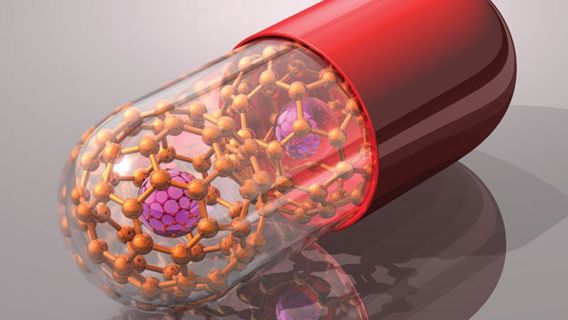
Introduction:
Medical technology developments have opened up the possibilities for ground-breaking advances in the healthcare industry. The application of nanoparticles in nanomedicine, a subfield of nanotechnology, has the potential to completely transform medical practises. These tiny particles have the potential to enhance diagnostics, medication delivery methods, and therapeutic modalities because of their special features. The purpose of this article is to examine whether nanomedicine can lengthen human life and the many means by which it might be able to do so.
Enhanced Diagnostics:
Through the provision of more precise and fast information, nanomedicine has the potential to revolutionise diagnostics. Nanoparticles can be created to look for specific biomarkers linked to disorders like cancer, heart disease, or infectious infections. These nanoparticles can be used as contrast agents by medical practitioners to increase the precision of imaging processes like MRIs and PET scans. Early disease detection is essential for quick intervention and treatment, which ultimately improves people's chances of living longer and in better health.
Targeted Drug Delivery:
The capacity of nanomedicine to precisely deliver medications to particular target locations of the body is one of its most important advantages. It might be difficult for traditional drug delivery devices to effectively reach the desired spot while minimising unwanted effects. Drugs can be developed to be encapsulated in nanoparticles, preserving them against deterioration and allowing for controlled release. Additionally, by precisely targeting cancer cells or contaminated tissues, these nanoparticles can improve the therapeutic effect while minimising harm to healthy cells. Using targeted drug delivery, chronic disease patients may experience better treatment outcomes and live longer lives.
Regenerative Medicine:
In the area of regenerative medicine, which tries to repair or replace diseased or damaged tissues and organs, nanomedicine also shows promise. Researchers are looking into ways to encourage tissue regeneration and healing by using nanoparticles. Nanoparticles can be utilised as scaffolding to carry growth factors or other bioactive compounds, improve tissue regeneration, and encourage the formation of new cells. By offering treatments for diseases that were once incurable or irreversible, such as heart disease, neurological disorders, and organ failure, this technology may revolutionise how these conditions are managed.
Anti-Aging Therapies:
The creation of anti-aging treatments is another area where nanomedicine has potential for increasing human longevity. Cellular damage, oxidative stress, and the buildup of toxic compounds in the body are all factors in ageing. Nanoparticles may be used to target and heal this cellular damage brought on by ageing, according to researchers. Nanomedicine has the ability to slow down ageing and promote a longer, healthier life by delivering antioxidants or other compounds that support cellular health. To guarantee that people have a decent quality of life, it is crucial to note that the idea of increasing human lifespan presents ethical questions that need to be carefully considered.
Personalised Medicine:
By customising therapies to each patient's unique needs, nanomedicine has the potential to revolutionise the practise of personalised medicine. Doctors can collect real-time data on a patient's condition using nanoparticles, track the effectiveness of their medication, and modify their course of treatment as necessary. Through the provision of more efficient and specialised medical interventions, this personalised strategy can improve treatment outcomes, reduce side effects, and possibly increase human lifetime.
Challenges and Ethical Considerations:
While the prospect of nanomedicine extending human life is enticing, there are a number of obstacles and ethical issues that need to be resolved. Nanoparticles' long-term impacts on human health raise safety concerns that need to be thoroughly investigated and understood. To ensure compatibility and reduce dangers, the interaction of nanoparticles with biological systems needs to be carefully studied.
Equal access to nanomedicine is also essential to stop increasing healthcare inequalities. It is crucial to make sure that everyone can benefit from these improvements, irrespective of their socioeconomic background or location. To ensure that the potential advantages of nanomedicine are not only available to a select group of individuals, this calls for addressing concerns of accessibility, affordability, and education.
Conclusion:
The field of nanomedicine has gained prominence as one that holds great promise for improving human health and extending life. Nanomedicine is demonstrating considerable promise in a number of fields, including improved diagnostics, targeted medication delivery, regenerative medicine, anti-aging therapies, and personalised medicine. To guarantee the security, effectiveness, and long-term consequences of these technologies, nevertheless, more investigation, development, and rigorous testing are required.
It is crucial to address the difficulties and ethical issues surrounding this technology as researchers continue to look into the promise of nanomedicine. Nanomedicine has the potential to revolutionise healthcare and lead to longer, better lives by achieving a balance between innovation and ethical application. As we advance, it is essential to make sure that everyone can benefit from nanomedicine and that any hazards are well controlled. In the end, nanomedicine has the potential to lengthen human life, but it must be used carefully, with careful research, and with ethical considerations in mind.
Follow Fatima Hasnain to stay updated on their latest posts!
0 comments
Be the first to comment!
This post is waiting for your feedback.
Share your thoughts and join the conversation.
